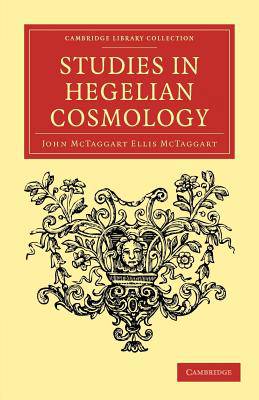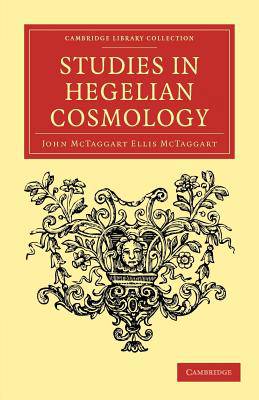
Door een staking bij bpost kan je online bestelling op dit moment iets langer onderweg zijn dan voorzien. Dringend iets nodig? Onze winkels ontvangen jou met open armen!
- Afhalen na 1 uur in een winkel met voorraad
- Gratis thuislevering in België vanaf € 30
- Ruim aanbod met 7 miljoen producten
Door een staking bij bpost kan je online bestelling op dit moment iets langer onderweg zijn dan voorzien. Dringend iets nodig? Onze winkels ontvangen jou met open armen!
- Afhalen na 1 uur in een winkel met voorraad
- Gratis thuislevering in België vanaf € 30
- Ruim aanbod met 7 miljoen producten
Zoeken
Omschrijving
John McTaggart (1866-1925) was a Cambridge philosopher, famous for his metaphysical theory that time is not real and that temporal order is an illusion. Although best known for his contributions to the philosophy of time, McTaggart also spent a large part of his career expounding Hegel's work. In this book, first published in 1901, he discusses which views on a range of topics in metaphysics and ethics are compatible with Hegel's logic and idea of 'the Absolute'. Some early work on theories for which McTaggart later became well known can be found in this work, such as his beliefs that humans are immortal, that the Absolute is not in any sense a person, and that love is the relation that binds people together. In this book he also discusses punishment, sin, morality and whether Hegel could be considered a Christian.
Specificaties
Betrokkenen
- Auteur(s):
- Uitgeverij:
Inhoud
- Aantal bladzijden:
- 318
- Taal:
- Engels
- Reeks:
Eigenschappen
- Productcode (EAN):
- 9781108037945
- Verschijningsdatum:
- 3/11/2011
- Uitvoering:
- Paperback
- Formaat:
- Trade paperback (VS)
- Afmetingen:
- 140 mm x 216 mm
- Gewicht:
- 403 g

Alleen bij Standaard Boekhandel
+ 144 punten op je klantenkaart van Standaard Boekhandel
Beoordelingen
We publiceren alleen reviews die voldoen aan de voorwaarden voor reviews. Bekijk onze voorwaarden voor reviews.











